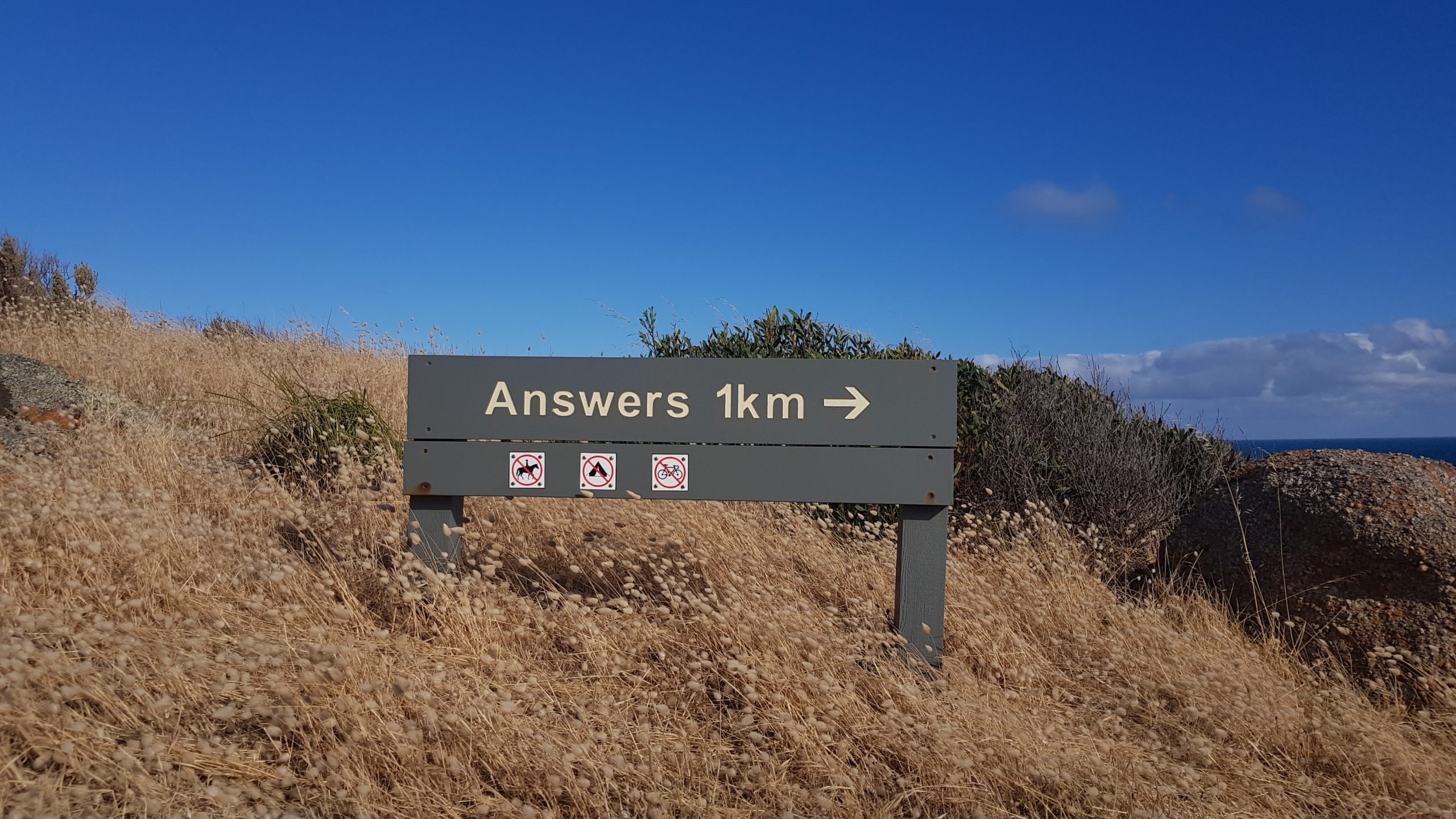
Leadership, Productivity
The Miracle of Space
To say I’ve been busy lately is an understatement. Don’t get me wrong, I’m extremely grateful for the meaningful work I’m doing currently, I’m more excited than ever about the future and the possibilities it may hold. But my brain is full, and some days I feel like I pass from one zoom call to another zoom call and there is barely space to take a breath. In the last few weeks, I’ve noticed an alarming trend too – I often forgo the yoga or pilates class and just keep working instead. Just get the proposal out. Finish the blog post. Hurry up, you can do it Shelley! Make that hamster in the wheel of your mind spin. Except it just won’t. The hamster feels punch drunk and lethargic. He’s had enough, packed his bags and moved to Puerto Vallarta. Adios! Sound familiar? Hence the topic of this blog, the miracle of space. Space is magical Space is magical. It’s the place of inspiration, of creativity. Have you ever been struggling with something, a concept, a problem, and you get up to go to the bathroom or grab a cup of coffee? Then you walk back to your screen and boom – you have the answer! It’s not a coincidence. It’s not the fact that a magic genie lives in the bathroom. It’s the magic of space. Our brains need it to be creative, to innovate. I think that’s one of the reasons I’ve had such a hard time coming up this week with a topic for this blog. When your head is full and tired, the ideas don’t really flow. I was starting to think of previous blog posts I could recycle, but my pride intervened. I can’t do that to you my dear readers… Creativity Craves Space I used to teach a course on creativity, which is slightly ironic considering I’ve never considered myself a particularly artistic or creative person. I used to hold up a paper clip or a shoehorn or some sort of everyday object in front of my group of participants. Then I’d ask folks to brainstorm as many uses for that item as they could in 5 minutes. 5 minutes may not sound like a long time, but sometimes it felt like forever when I was running this exercise. And I never shortened the time. The first minute or so, every obvious option for what to do with a paper clip got exhausted. Then we’d typically sit in awkward silence for a minute or two. I never said much. I didn’t try to prod the group on. I didn’t tell them to hurry up. And then the ideas would start to flow again. But this time they were brilliant. They were the ideas that were way beyond the obvious. The real innovative ones. I’ve heard potential uses for the paper clip the likes of the world have never seen. Where is the space in your day? I sometimes do mentor coaching as well, the
July 29, 2022
|
4.3 min read

Leadership
The power of assumptions: 4 simple questions to ask yourself to make sure your team really knows what they’re doing
The power of assumptions There’s a saying about the word assumption. That assume makes an ass of you and me. Get it? It’s not the most polished of phrases, but it tends to be true, if you think of the times in the past when you’ve been embarrassed or caught out or a project or deliverable that otherwise missed the mark. I was reminded of it today while facilitating a session to a group of team leaders. I asked them to think about several questions as they relate to their team and their leadership. The goal of my inquiry? To get folks thinking about what assumptions they have made about their team’s understanding of purpose, the overall vision, and the plan. 4 Simple Questions To what extend do we: Know how our work matters to the organization and our customers? Have a clear shared team purpose and do we talk about it? Agree explicitly on what our priorities are and decide what we will and will not do to manage workload? All have a shared understanding of the intent-based outcomes of each of our key deliverables? I had them rate themselves on a scale of 1-5, 5 being high on each of these questions and discuss. What was interesting was the discussion that ensued. Each leader reported back they had work to do in this area. In many cases, we take it for granted that 1) our direct reports know what the purpose of the team is, 2) know what the team priorities are and 3) understand the outcome and intent we are so keenly focused on. Except the fact of the matter is often they don’t. Then they start making assumptions about what is or isn’t important. And spend time on things that aren’t really value added or driving the overall mission and vision of the team. There’s a huge hidden cost to this in organizations. Don’t wait for the audit I remember back to my days in internal audit when I would turn up to do an audit of a business unit and I’d start interviewing stakeholders. I’d ask individuals on the same team to define what success looked like. 20 interviews and 20 completely different answers later, I’d write an audit finding about the lack of clear success criteria for the unit. Just because you think you know what it is, doesn’t mean that it’s translated. It reminds me of that childhood game called “telephone.” A group of people sitting in a circle, and one whispers into the ear of the next the secret which goes around the circle. What comes out on the other end rarely bares any resemblance to the original message. It’s up to you as a leader to constantly be checking in, to understand the extent to which others on a team really get the vision and mission that’s been laid out. As a leader, you’re in a position to influence these things. But we often dive so quickly into the doing, we
June 16, 2022
|
3.3 min read

Leadership
The Power of a Great Question
We all know we should ask good questions. The problem is that a lot of the time we don’t do it. We default to the things that are more comfortable. When I’m teaching coaching skills to leadership, I often have them do a very simple exercise. Advice versus open ended questions In pairs, they take turns listening to a colleague, but in the first round, they do it with the hat of a mentor. They can give advice. And boy do they. These conversations typically descend into, “here’s what I’ve tried that’s worked. You should do this.” I hear loads of closed ended questions, lots of yeses and nos as they probe their colleague for what they tried and what they didn’t try. In the second round, they can’t give any advice, and only can ask open ended questions. (An open-ended question is one that can’t be answered with a yes or a no just in case you were wondering.). They really struggle with this one. But during the debrief, the folks with the issue typically report that the latter exercise, the one where only open-ended questions could be asked, was the one that really expanded their thinking or got them to see something from a different perspective. Why are open ended questions so powerful? I’ve often seen the light bulb go off after I debrief this exercise. If I’m asking an open-ended empowering question, the person on the receiving end comes to their own conclusion, not the conclusion that I think could be best for them. The benefit of this is that the person being questioned takes more ownership of whatever the solution is. Have you ever had a great piece of advice which you willingly gave to someone and just couldn’t understand why they didn’t take the idea and run with it? Well, it may have been great for you, but it probably wasn’t great for them. The ability to create one’s own solution creates natural by-in in the problem-solving process. It gives the person with the problem a sense they also have autonomy, which is something that greatly motivates folks and many of us desperately crave this in our work. I can’t tell you how many coaching clients I’ve had who are looking to leave a job who say they don’t have enough creativity in their work. They feel micromanaged. They feel condescended to. It’s not surprising considering it’s sometimes just easier in the short run to “tell” someone how they should do something. The problem is that this way of communicating creates loads of longer-term issues. Powerful open-ended questions also create engagement. If I’m telling someone what I think they should do, how engaged do you really think they will be in the conversation? Asking a powerful open-ended question opens the dialogue, I am engaging this person on a deep level, getting them to think critically and creatively about the issues they face. And if you don’t think engagement is important, think again. According to Gallup,
May 11, 2022
|
4.5 min read

Leadership, Productivity
What a jar of rocks and sand can tell you about your life
The other day I was teaching a leadership course, and I shared the following video: https://www.youtube.com/watch?v=j6m9WnNdpSw Rocks and Sand In it, it depicts Charlie Chaplin attempting to fill a container first with sand, and then cram a number of large rocks in at the top. The rocks spill over as obviously there’s not enough room. And then he tries again. He puts the big rocks in first, and then pours the sand in. This time, everything fits, as the sand fills up the empty cracks around the rocks. What are the big rocks in your life? There’s an obvious metaphor to our day to day lives in this short and insightful little rocks and sand video. The rocks represent the big things in our lives. Things like important projects, health and wellness, our career development, our family. And it’s important to realize that the big rocks also change over time. The sand are the small bits like emails, phone calls, administrative tasks and recurring minor deliverables. The question I asked the group, was “Where do you tend to focus first – the rocks or the sand? I was hoping they’d be honest and they were. Just about every of the 28 participants owned up to wanting to focus on the sand first, and push off the big rocks in their life. Why do we focus on the sand first? We do this for a number of reasons. Firstly, the bigger things are often the more nebulous ones. So often we don’t even know where to start. When we don’t know where to start, it makes it easier to avoid these things. Secondly, the sand is easier to tackle. These are often quick emails, phone calls, reports that need to be run. We know what to do, and so it’s just easier to drive right in. The third reason is rooted is physiology. We often get a small dopamine hit from crossing something off our to do list. So we pick the path of least resistance and higher reward, at least in the short term. Tips for getting the big rocks It’s no surprise that the big things often allude us in life. We tell folks that we’re just too busy, and never seem to be able to find enough time to do all the things we want to do. And that makes perfect sense when the sand comes first. A few tips I often share with clients on this front, that help to minimize the sand and put the rocks first are: Turn off the notification on your phone and laptop that dings or pops up to let you know you have more email. The notifications will hijack your attention from the important rock you’re focused on. And good luck getting refocused. Spend time at the end of the day or at the beginning of the day, getting clear on the 2-3 big rocks you want to make a dent in. It only takes a few minutes to remind yourself
February 21, 2022
|
3.5 min read

Career Coaching, Leadership, Life Direction and Purpose
What is a personal branding statement? Why do I need one?
There’s a lot of hype at the moment about knowing your personal brand. Let’s break it down – what is a personal brand, and why is a personal brand important in career search as well as managing your career? What is a personal branding statement? When I coach career and leadership coaching clients, we often talk about a personal brand – a simple 1-2 sentences that speak to: 1) your unique gifts and 2) how you add value. Notice I put the emphasis on simple. I have noticed there is a tendency on resumes these days to put a few objective lines at the top of a resume and throw in every buzzword known to man, in the desperate hopes of seo optimization and hoping that something you say will resonate with someone. “I seamlessly utilize my core strengths of teamworking, project management, financial acumen and strategic thinking to empower global organizations to create cost beneficial forward-thinking solutions on the cutting edge of digital transformation that drive efficiency, effectiveness and create a happier and healthier workforce.” This doesn’t work, just in case you were wondering, and often recruiters dismiss this as unnecessary fluff. The paragraph long sentences also read like something out of a Nathaniel Hawthorne novel, and I didn’t like the Scarlet Letter the first time I read it. “I utilize my project management skills to help organizations deliver efficient, effective, digital solutions.” Much better – easier to read, easier to comprehend, and easier to tell the story of YOU. Why is a personal brand important in career search? Your resume then should speak to this statement. Imagine you’re telling a story. And the personal branding statement is the 30,000 foot up airplane view of you and your career. Your resume should then read to explain how you have managed to do this for the organizations that have been graced by your amazing presence. Consistency is key, and it’s super helpful in getting someone to remember you and what you bring to the table. Besides, human beings are natural story tellers. We like them, it’s our way of summarizing things and making sense of the world. Why is a personal brand important in managing your career? But I’m not switching jobs, so what does this matter? Does this mean I don’t need to worry about a personal brand? Wrong again. Because in your day job, you’re always marketing yourself, always selling yourself, for that next all-important project, that next promotion. And if you’re not the guy or gal on management’s radar for that particular role based on what they know about you, you’ll get overlooked. Ask yourself this: How do you want to be perceived in your organization? What do you want to be known for? And then think about: How you are actually perceived in your organization? What are you known for? Better yet, ask a few trusted souls to answer those last two questions on your behalf. You might be surprised at the answers you get. If
February 10, 2022
|
3.5 min read
Leadership
Shelley Pernot, otherwise known as the Irreverent Guru of Mindfulness, muses on life, leadership and everything in between. Your one stop shop for career tips, leadership tips and daily inspiration!

It was a privilege to work with Shelley as my leadership coach! The process was structured and yet flexible enough to meet needs as they arose. Shelley helped me to grow, learn more about myself, and to really achieve what I set out to accomplish. We worked on planning, navigating a promotion successfully, and so much more! I experienced many successes as a result of working with Shelley, she has great resources, knowledge, and really helps with setting the foundation to this coaching work. She won’t let you down!
Stacy Campos
Regional Coordinator
Having the opportunity to have Shelley as my Leadership Coach could not have come at a better time in my career. I was recently promoted to CFO and was new to the Senior Management Team. Shelley helped me navigate joining the team as well as helped me to determine who I wanted to be as a leader. The Leadership Circle Profile helped our team to discover our blinds spots and to be able to understand each other better. Working with Shelley not only has affected my professional life in a positive way, but also my personal life. She helped me take leaps and has given me the resources to continue this journey of self-improvement. If you’re looking to find more about yourself and how you can be the best version of yourself, I highly recommend working with Shelley.
Kristen Spedale
CFO
I have been working with Shelley for the past 2 years on my leadership development journey. What I thought would be a straight line, I soon learned with Shelley’s guidance, was a winding path with several ups and downs along the way. Shelley supported me as I took a deep dive into my professional and personal history and learned how it affects my approach and my perceptions. She helped me to slow down and recognize certain behaviors and understand that I can pivot in the moment or try again next time. Ultimately, my work with Shelley turned out to be so much more than what I expected. Her approach to coaching was exactly what I needed.
Nicole Naassan
Senior Vice President, Consulting
I’ve learned more about leadership in the past six months working with Shelley than I have in my 10+ year career. She is an incredible coach with many tools in her toolbox. The guidance and mentorship I’ve received from Shelley has been life-changing. She will challenge your limiting beliefs and inspire new ways of thinking.
Margaret Soltis
Creative Director
I highly recommend Shelley if you need a coach, thought partner, and guide as you consider the next steps in your career. She provides practical tools and advice to help launch your career exploration, but most importantly, she is an expert at helping you cut through the noise of your limiting beliefs. At the end of our time together, I had a much clearer vision of what I wanted in my life and a plan to make it happen. My only regret is that I didn’t find her sooner!
Elizabeth Magnus
My career coaching sessions with Shelley have brought me back to living. It’s been contagious, spreading throughout my personal and professional life. I now have the building blocks I need to continue setting healthy boundaries, the freedom to show up as my authentic self, and an adaption of a growth mindset that has allowed me to make bold decisions and try new things. I’ve discovered that there’s always another way and how to eradicate barriers that lead to tunnel vision. These sessions with Shelley have been a great gift and have given me the momentum I need to continue the journey to be my best self.
Teasha Houston
Art Director
It is amazing to think where I was only 10 months ago when I first started working with Shelley and where I am now. Not only professionally but mentally and emotionally. Shelley helped me navigate out of an unhealthy work environment by challenging me and asking me those tough questions we never seem to ask ourselves. What are the values of a true leader? How do those values align with my own? Shelley challenging me and guiding me through some of those tough questions is what led to my epiphany and me having the courage and confidence to leave an environment that threatened my well-being. She taught me how to become more self-aware and self-compassionate. Reminded me to be kind even when the world would understand if I did otherwise. And the biggest one for me, shutting down that crazy inner voice (we all have it!) and replacing it with being present. Shelley has armed me with tools that I will carry with me for a lifetime. Tools that will help me to continue to grow and learn. Life can be hard but working with someone like Shelley does make it easier. She will help you navigate the good and the bad and you’ll learn so much about yourself in the process.
Michele Feria
Director of Marketing
First of all I would like to say that I would recommend Shelley to anyone needing career guidance. As my counselor Shelley helped me transition my career from bartending to Tech Sales which was a difficult and scary transition for me. From the start Shelley was fantastic. Initially I had no idea of which direction I wanted my career to go, I just knew I wanted it to go somewhere else. Shelley was so kind and patient as she helped me figure this out, and gave me a step by step guide on how to explore my options and make an educated decision. She also helped me assess my skill set which played a large part in directing my energy. I landed a great job within days of my final session with Shelley, and now I’m month 3 I am absolutely loving it and doing very well. It was the perfect job for me and Shelley was the one that got me there. Working with Shelley was one of the best decisions I have ever made, she literally changed my life and I am so much happier for it.
Russell Boxer
Account Executive
